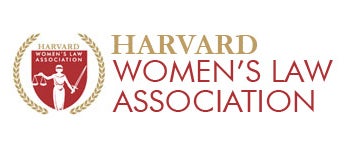Women played an important role in the Arab Spring revolutions, and their involvement is crucial to the ongoing political change in the region. To that end, the Harvard Law School Women’s Law Association sponsored an event presenting the perspectives of several HLS and Harvard Kennedy School women students from Egypt, Lebanon, and Saudi Arabia. The Women in the Arab Awakening panelists discussed their experiences as both activists in and observers of these events, and the subsequent impact the revolutions have had on women.
Farida Mortada, an LL.M. student who spent last year in Egypt, opened the discussion with a personal anecdote illustrating how women can be marginalized if they don’t insist on participating in the political process. She explained why she chose not to join protesters on 2011 International Women’s Day in Tahrir Square as they demanded equal rights and the right to hold office.
“I decided not to go to the protests because it just wasn’t the time for a women’s march, and there were so much more important things to think about, like the new constitution. I was really taken by bigger events and women’s rights did not seem like a priority. I was so wrong,” she said.
But she soon understood how women’s rights and the political revolution are interconnected. In the parliamentary elections months later, women won 10 out of the roughly 500 seats – two percent. Women hold just six spots on the committee of 100 leaders responsible for drafting the new constitution. The situation is getting more and more worrisome, Mortada said, because now there is no strong female presence in parliament to guarantee that women ever get power. Nor do they have a strong presence on the constitutional committee, hampering their ability to ensure that certain rights become entrenched in the constitution currently being drafted. She emphasized that it’s never the wrong time to fight for women’s issues.
Hanouf Alhazzaa, a visiting researcher at HLS who will begin her LL.M. studies in the fall, explained why her experiences in her native Saudi Arabia inspired her to pursue an education in America. She held a position in the Saudi government and headed its first department to address women’s land rights. But even though she was director of the department, she couldn’t sign any documents because it’s illegal for women to practice law. The experience inspired her to pursue a degree at the Law School in order to continue to work to change the system from within and by engaging others.
Hala Hanna contrasted Alhazzaa’s experience with her own in Lebanon. Civil society is stronger in Lebanon than in Egypt or Saudi Arabia, so women generally have more rights. She said that the problems facing all of the panelists stem from the system as a whole, so she instead discussed women’s movements across the Mideast, and not from the perspective of any one country.
“It is not revolutions or the Arab Spring that have a negative impact on women, but rather the preexisting conditions within society that brought us where we are today regarding women’s rights,” she said. “All the gains that women have achieved were somewhat imposed from above. It’s the king who is passing these laws. We’re lacking the grassroots movements that put weight on women’s issues.”
The struggle for women’s rights is common throughout the world – in Europe, in Latin America, and even here in the United States, where women are not equally represented in the political arena, Hanna said. The struggle for women’s rights is not unique to the Middle East, but now the work that women are doing to gain equality in that region is getting the attention that it needs.
